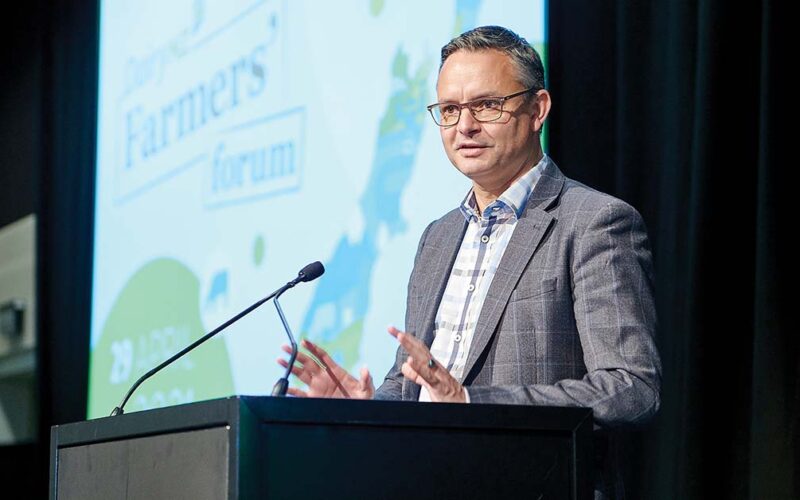Green Party co-leader James Shaw does not support the government’s new agricultural emissions pricing policy, but as climate change minister will work to implement it, he says.
Farming groups also appear to have hardened their attitude to the policy, using terms such as “tone deaf”, “thoughtless” and “dismay”, a far cry from last December when they stood alongside then prime minister Jacinda Ardern to announce the proposals as part of the He Waka Eke Noa (HWEN) climate action partnership.
The change is due in part to the timing of the policy announcement. Farming groups were given details less than 24 hours before they were publicly released. There is also unhappiness about the lack of detail about pricing and the decision to not include a review of targets or the methodology for measuring methane.
Shaw told Farmers Weekly he does not support the policy, but as climate change minister he is bound by Cabinet responsibility and will work to implement it.
The government’s policy includes farm-based emissions pricing, development of systems to measure and report emissions, retaining a split gas approach and delays to reporting on emissions until the fourth quarter of 2024 with pricing starting in the fourth quarter of 2025.
HWEN has not yet responded to the policy announcement. Last December it was receptive to the policy direction.
“This is a high-level, direction-setting [set of proposals] and does not have all the detail farmers and growers will need, but it is an important milestone,” HWEN independent chair Sarah Paterson said at the time.
“It confirms that HWEN has been successful in putting the case for a farm-level split gas levy instead of including agriculture in the New Zealand Emissions Trading Scheme.
“It shows the government is listening to sector and Māori views and is taking action to address concerns. This shows the value of working together.”
HWEN programme director Kelly Forster told the Carbon Forestry conference this week that pricing remains the most contentious element of the policy.
She welcomed work to combine 11 greenhouse gas emission calculators into one and the greater recognition of sequestration.
DairyNZ chair Jim van der Poel said in an interview this week that the government’s focus on pricing agricultural emissions ignores the fact they are falling.
Without first settling on a standardised system to measure emissions, Van der Poel said, there is no way of knowing the scale of reduction required or whether that requires an emissions price.
“Once we know our number we can then see how we are tracking to meet our targets and what is left to be done.”
There are only two reasons to ever impose a levy, he said: to fund research and development, which the primary sector is doing, or to incentivise the adoption of new technology.
As Green Party co-leader, Shaw has reservations about the policy, saying it is overly bureaucratic and based on what he called “heroic modelling assumptions”.
With sheep and beef farmers having narrow profit margins, he said, prices ensure viability while also reducing emissions.
The price should not be left for ministers to set.
“Ministers setting a price generally has not worked out well in the past.
“My view is that the pricing mechanism proposed will not be effective and we need a much more market-oriented, less bureaucratic approach to the whole thing, and as Green Party co-leader I want to build such a system.”
He is proposing a tradeable quota system for methane and nitrous oxide emissions, whereby those who reduce emissions more than required can trade rights to their surplus emissions to those who cannot.
He gave the example of a farmer who has to reduce emissions from 100t to 99t, but actually reduces them to 98t.
That would give the farmer a tonne to trade with another farmer.
Such a system would be market-led and encourage innovative thinking, he said.
It is a proposal that was supported by some in the industry but not by government officials or HWEN.
Shaw said the concept is not foreign to Fonterra shareholders, who trade shares on the NZ Stock Exchange through the Fonterra Shareholders’ Market.










